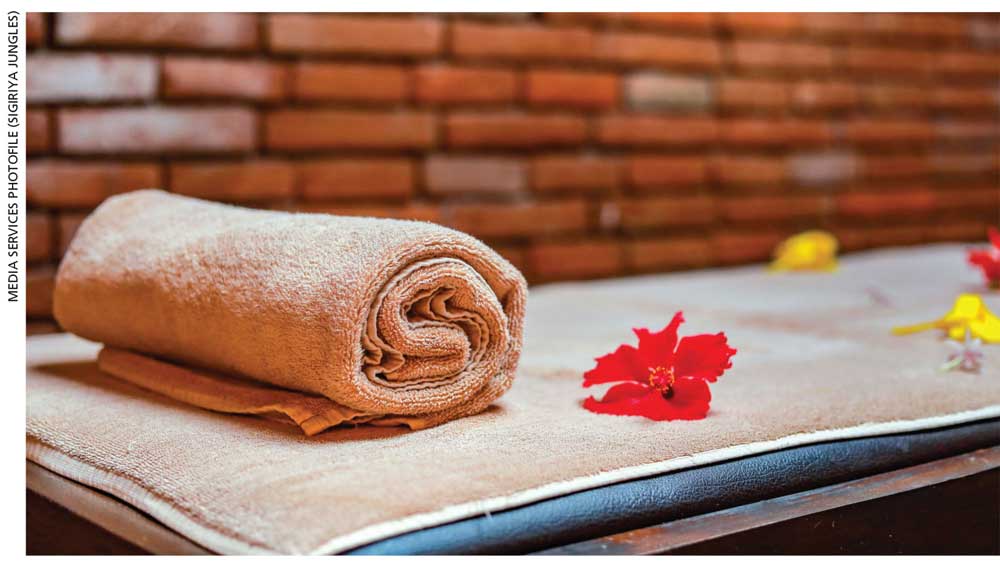WELLNESS TOURISM

HOLISTIC WELLBEING OFFER
Janaka Perera describes how tourists could benefit from holistic wellbeing

Holistic healthcare is gaining increasing importance in consumer decision making. Tourists expect to maintain their healthy lifestyles and wellness routines even when they’re away from home.
Before the COVID-19 pandemic, the wellness sector grew much faster than regular tourism. Now it is expected to accelerate because of a post-pandemic resurgence in travel. And experts are confident that its growth will surpass pre-pandemic levels this year.
The Global Wellness Institute (GWI) defines ‘wellness tourism’ as travel associated with the pursuit of maintaining or enhancing personal wellbeing. With so much ill health embedded in today’s travel, wellness tourism aims to combat those negative qualities and transform life’s journey by maintaining and improving one’s health holistically.
Wellness tourism is often confused with medical tourism not only by consumers but destination marketers too. This is due to a lack of understanding of the different offerings, and the inconsistent use of terminology by destinations, government organisations and promotion agencies.
At times, the term ‘health tourism’ is also used as a catchall phrase to describe various types of medical and wellness services and activities, which range from open-heart surgery and dental care, to destination spas and yoga retreats. This in turn causes further confusion.
In fact, these two sectors operate largely in separate domains and meet different consumer needs.
Medical tourism refers to travelling to another country to obtain treatment for specific cases of ill health such as undergoing surgery or receiving dental treatment because it is more affordable, of higher quality or unavailable at home.
On the other hand, wellness tourism encompasses proactive efforts to maintain a healthy lifestyle, reduce stress, prevent disease and enhance wellbeing.
It is about travel that’s focussed on maintaining or improving personal wellbeing, and this could include physical and mental wellness too. Activities may encompass spiritual, physical or psychological efforts but all these will promote good health in some way.
Sri Lanka is poised to take advantage of this situation with its ancient traditions of wellness in terms of Ayurveda and hela wedakama (indigenous medicine). While wellness is not new to us, we need to understand what consumers are seeking vis-à-vis products and offerings that can cater to all types of wellness travellers.
The country’s historical connections with Ayurveda treatment and meditation, advanced (yet affordable) modern healthcare and global popularity as a popular warm weather vacation spot add to Sri Lanka’s appeal as a leading wellness tourism destination.
Former German chancellor the late Helmut Kohl was a prominent international personality who had great faith in Sri Lanka’s Ayurveda-based wellness tourism. He was in Sri Lanka at the time of the 2004 tsunami.
There is some overlap between medical and wellness tourism such as in the case of DNA testing or executive checkups. But in general, the type of visitors, activities, services, businesses and regulations involved differ between medical and wellness tourism, even though these may both be dependent on a region’s basic tourism and hospitality infrastructure and amenities.
With solid tourism infrastructure – and an extensive network of Western and Ayurveda medical treatment centres, which must be carefully regulated by the government – global travellers arriving in Sri Lanka can combine a holistic wellness experience with an exciting holiday spent on its golden beaches or lush green mountains.
In the context of the tourism industry, wellness is a rapidly growing sector. There isn’t a better place than Sri Lanka to enjoy this unique experience because of the renowned hospitality of its people. And the historical connection with Ayurveda, yoga and meditation makes Sri Lanka a sought after destination for wellness tourism.
Due to the island’s widespread network of traditional Ayurveda medical resorts and yoga retreats, tourists can enjoy a wonderful holistic wellness experience.
The country needs to develop an end-to-end wellness strategy. Currently, there isn’t extensive global awareness about Sri Lanka’s wellness offering. Therefore, it is necessary to understand what consumers in Sri Lanka’s key source markets desire, and aim to provide these products and services efficiently and effectively.
We have an untapped, authentic and competitive advantage in harnessing the ancient traditions of hela wedakama and Ayurveda; but most importantly, we need to extend that offering to encompass wellness travel experiences that connect with the country’s nature, food and people.
Reaching this goal involves focussing on both demand and supply. From a supply point of view, Sri Lanka needs to educate, inspire and motivate the local tourism industry so that it understands the true value of wellness travel.




Leave a comment